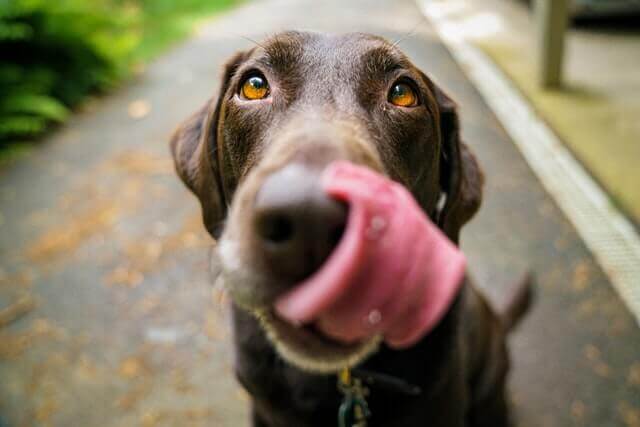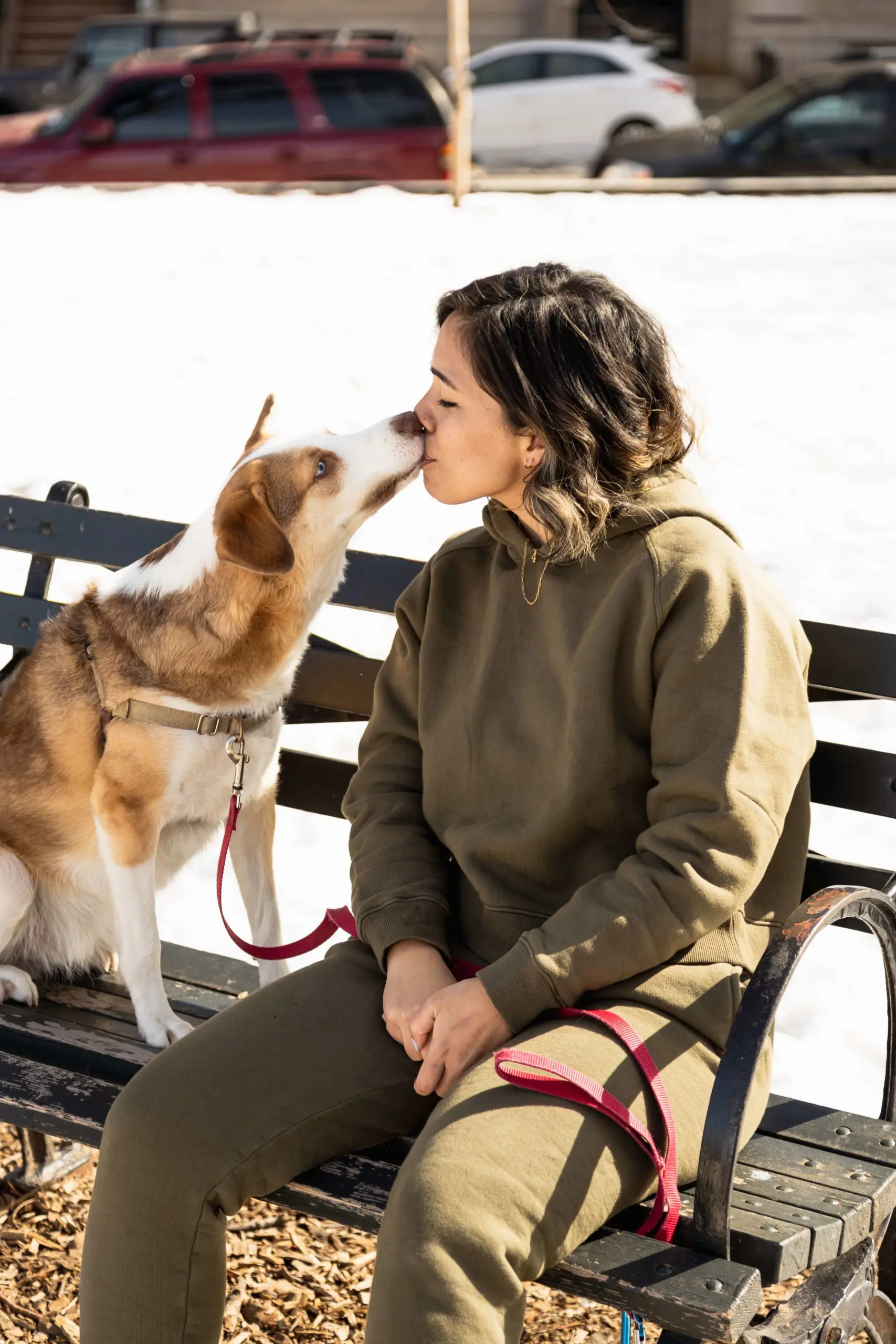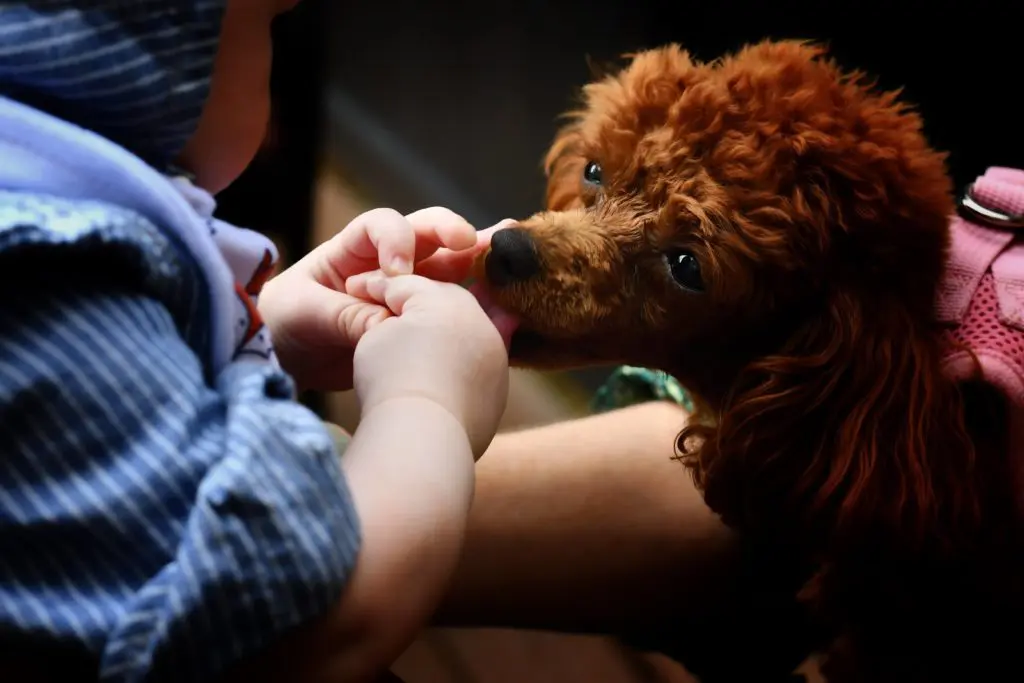Pet parents love to feel like part of the pack. It’s great to be reminded that our dogs love us back, even when they say it with lots of sloppy kisses.
Some people enthusiastically accept licks from their pets while others discourage it, but is it actually unhealthy? Learn more about the potential risks of allowing your dog to cover you in kisses, and how to show your affection safely.
 Why do dogs lick faces?
Why do dogs lick faces?Like humans, our pups have distinctive individual personalities – and some just like to lick more than others. Your dog’s fixation with licking your face, however, is based on instinct.
When they are puppies, dogs will lick their mothers to bond, exchange scent information, and stimulate regurgitation. Wolves, your dog’s wild ancestors, use licking to help organize their social hierarchies. A submissive wolf will lick its pack leader’s face as a sign of respect and to ask for permission to eat.
As a part of your human family, kisses on the face are still a way of communicating. Your dog may be trying to:

The question of whether or not to encourage kisses is an issue that divides many pet parents.
On one hand, dogs’ saliva contains some antibacterial and antimicrobial properties – which explains why they instinctively lick their wounds to promote healing. On the other hand, it would be inaccurate to claim that dogs’ mouths are categorically cleaner than humans.
Dogs’ mouths are home to a microbiome of unique organisms. While these yeasts, viruses, and bacteria are normal for your dog, they are unfamiliar to our human immune systems. There is a possibility that exposure to these novel organisms can make people ill.
Dogs have a reputation for being fairly indiscriminate about the things they sniff, lick, and eat. For this reason, their mouths can easily become home to bacteria like E. coli, campylobacter, and salmonella. These microorganisms are zoonotic, which means they can be readily passed from one species to another.
While healthy adults will almost certainly survive being exposed to the viruses or bacteria in their dogs’ mouths, there is a non-zero risk of gastrointestinal illness and oral diseases from puppy kisses.
Certain parasites like giardia, roundworms, and hookworms can also be transmitted through licks. These organisms can cause severe abdominal pain and digestive problems in dogs and humans.
Just like the organisms in our dogs’ mouths may not be good for us, the products on our skin may not be good for our dogs.
Certain cosmetics, lotions, and topical medications may contain ingredients that are toxic to pets, so it’s best to be aware of what is on your skin before you allow your dog to lick you. If you suspect your pup has ingested something harmful, contact your vet right away.
 Is it safe for dogs to lick kids’ faces?
Is it safe for dogs to lick kids’ faces?In a word, no. Children and babies have developing immune systems, so they are more likely to become sick from any viruses or bacteria present in your dog’s mouth.
The most important reason to discourage licking, however, pertains to dog safety. Kids who are taught to show affection for pets through hugs and kisses may not understand that unfamiliar dogs might respond with aggression. Even good-natured family pets can snap at children who don’t know how to read their body language, so it’s a good idea to discourage any nose-to-nose play.
While the risk of serious illness is small for healthy adults, you can minimize them by being selective about where your dog licks you.
Avoid direct contact with your eyes, nose, and mouth, as well as any broken skin. If you choose to let your dog kiss you, it’s a good idea to wash your face and hands afterward so that potentially irritating bacteria don’t linger.
In lieu of kisses, consider showing love in other ways, like scratches behind the ears, belly rubs, or playtime with a favorite toy. Use what you know about your pup’s favorite activities, and you can share affection without sharing saliva.